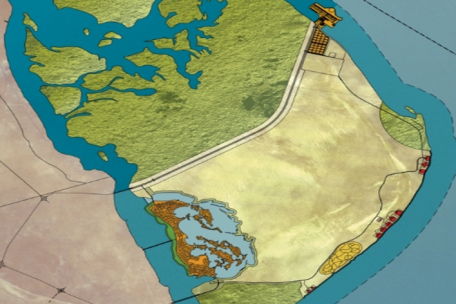Iraq’s Geopolitical Restraints and Kuwait’s Opportunism

Tensions between Iraq and Kuwait over the latter’s decision to build the Mubarak el-Kabeer mega- port in the vicinity of its border with Iraq tempt analysts to speculate on the possible outbreak of another military confrontation in the Middle East. Hossein Ala’i, former commander of the Iranian Naval Forces speaks of the nature of the new dispute:
Compared with the other Persian Gulf littoral states, Iraq is less geopolitically gifted. It is connected to open waters via two lifelines: the Khawr Abdullah waterway, jointly used by Iraq and Kuwait, and Shat-al-Arab/Arvandroud waterway, shared between Iraq and Iran. Territorial claims have been a part of Iraq’s policy vis-à-vis Kuwait throughout recent decades. During his rule, Saddam Hussein claimed Kuwait as the 19th province of his country, and was persistent enough to occupy Iraq’s tiny southeastern neighbor a couple of years after he ended the devastating 8-year war with Iran. Saddam’s dare forced multinational forces to cut down the Iraqi tyrant to size and paralyze his regime for more than a decade before occupying the country.
Kuwait has now decided to construct a new marine hub in Bubiyan Island. The body of land lies on the estuary of the Khwar Abdullah and the construction of a trade port there will give Kuwait the upper hand commercially. Iraq’s retrogression during Saddam Hussein’s rule and the US occupation deprives its statesmen from employing a counterstrategy against Kuwait’s initiative, so official protests voiced in Baghdad may be the only possible option at the moment for Iraq.
Legally speaking, Kuwait is allowed to construct a new port on its own side of the Khwar Abdullah waterway. Iraq can carry out similar projects in Faw Island or Umm Qasr to translate its access to Persian Gulf waters into economic profit. The fragile circumstances inside the country prevent Baghdad from thinking of such major development projects however, and objecting to Kuwait’s decision is the only solution at hand.

